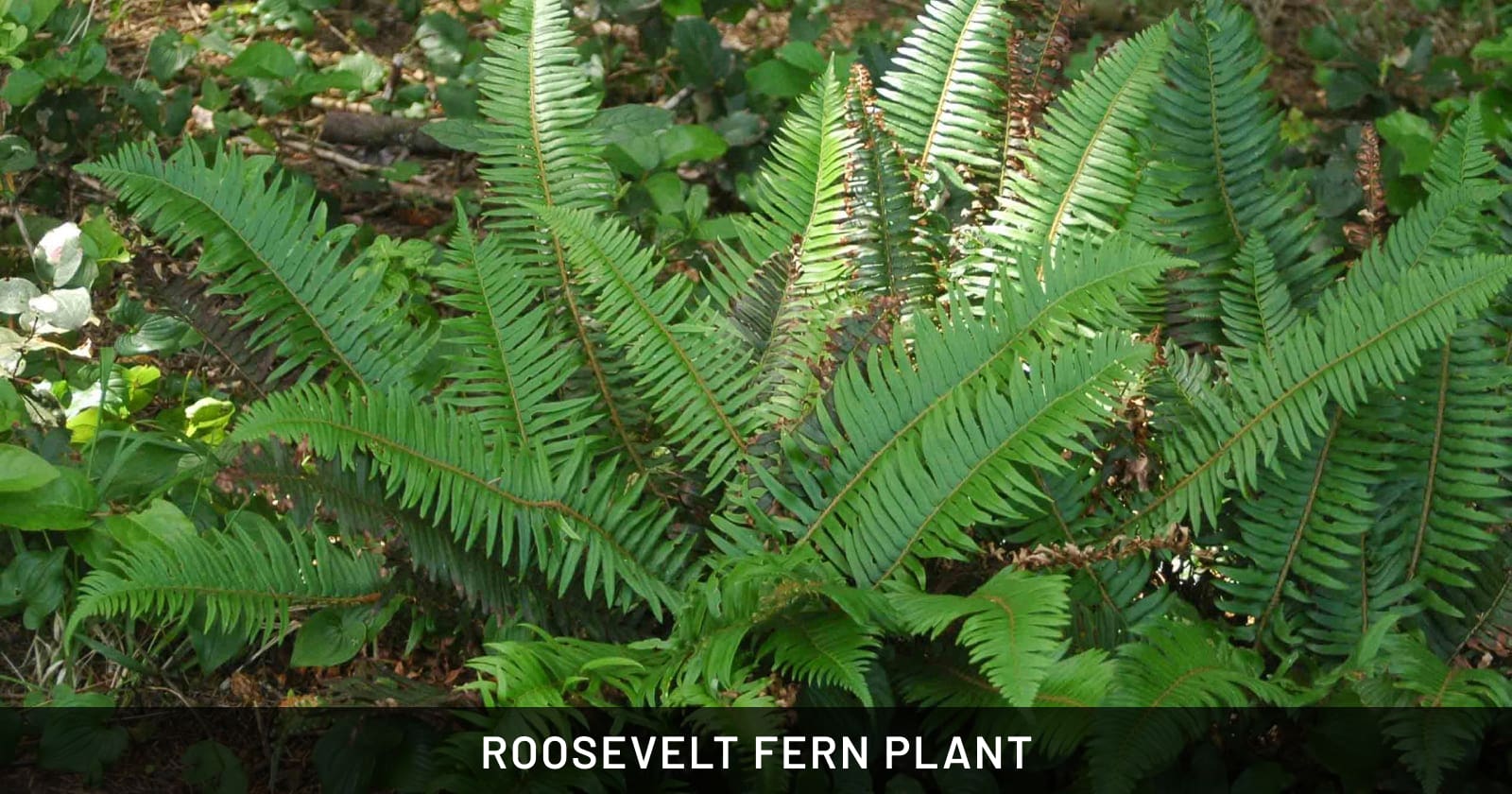Roosevelt Fern

The Roosevelt fern, known scientifically as Nephrolepis exaltata ‘Roosevelt’, is a lush, air-purifying houseplant that adds a touch of verdant charm to any indoor space. Its long, arching fronds create a sense of elegance and tranquility, making it a popular choice for home and office decor. For pet owners, the Roosevelt fern offers the added benefit of being non-toxic to both cats and dogs, providing peace of mind alongside natural beauty. Thriving in indirect light with consistent moisture, this fern is relatively easy to care for. Regular misting can help replicate its native humid environment, promoting lush growth. Whether nestled in a hanging basket or perched on a shelf, the Roosevelt fern enhances your living space while ensuring a safe, pet-friendly environment.
Here’s a detailed table of the characteristics and scientific details of the Roosevelt Fern (Dryopteris rooseveltiana):
| Characteristic | Detail |
|---|---|
| Classification | |
| Kingdom | Plantae |
| Phylum | Tracheophyta |
| Class | Polypodiopsida |
| Order | Polypodiales |
| Family | Dryopteridaceae |
| Genus | Dryopteris |
| Species | D. rooseveltiana |
| Physical Description | |
| Leaf Structure | Deciduous, with broad fronds |
| Frond Size | Typically grows up to 1-1.5 meters in length |
| Frond Color | Dark green |
| Sori Arrangement | Round sori arranged on the underside of the fronds |
| Stem Characteristics | Thick, scaly rhizomes |
| Habitat & Distribution | |
| Native Region | Eastern United States |
| Habitat Requirements | Moist, shaded forest floors |
| Hardiness Zone | USDA Zones 3-8 |
| Reproduction & Growth | |
| Spore Production Season | Late summer to fall |
| Growth Rate | Moderate to slow |
| Environmental Impact | |
| Ecological Role | Supports forest ecosystems by stabilizing soil |
| Interaction with Wildlife | Provides habitat for certain insects and small animals |
This table includes both physical and scientific aspects of the Roosevelt Fern, highlighting its classification, physical traits, native habitat, and ecological roles.
How to Grow and Care for Roosevelt Fern
Is the Roosevelt Fern plant toxic to Pets (Cats/Dogs/Horses)?
Roosevelt Ferns are considered non-toxic to dogs, cats, and horses according to reputable sources like the ASPCA. This makes them a beautiful and safe addition to your pet-friendly home.
What happens if my pet eats a Roosevelt Fern frond?
While non-toxic, ingesting large quantities of any plant material can cause mild stomach upset in pets. The Roosevelt Fern’s texture might deter them from eating a lot. Monitor your pet for signs of discomfort like vomiting or diarrhea. If concerned, consult a veterinarian.
Can Roosevelt Ferns irritate my pet’s skin?
Generally, Roosevelt Ferns are not known to cause skin irritation in pets. However, some pets with sensitive skin might react if they rub against the fronds excessively. Monitor your pet for any signs of irritation, such as redness or itching.